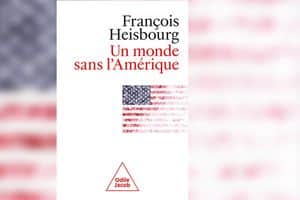Peter Andreas Thiel, an iconic figure in Silicon Valley, is an entrepreneur whose story is marked by his ability to anticipate and shape the future of technology. Born on October 11, 1967, in Frankfurt am Main, he migrated with his family to the United States, where he quickly carved a remarkable path. Thiel stands out for co-founding PayPal in 1998, a decision that would mark the beginning of his prosperity and influence in the Fintech field. His forward-thinking vision does not stop there: he also became Facebook’s first external investor in 2004, consolidating his reputation as a formidable analyst and savvy investor. His fortune and singular ideals have made him an essential player in American tech, often on the fringes, but always at the heart of innovation.
Table of Contents
ToggleBiography of Peter Thiel
Born on October 11, 1967, in Frankfurt am Main, Germany, Peter Andreas Thiel moved to the United States with his family at the age of one. A German immigrant, he grew up in Foster City, California, and later attended Stanford University, where he studied philosophy before earning a law degree.
Thiel began his professional career as a judicial clerk before venturing into the field of crowdfunding and new technologies. In 1998, he co-founded PayPal, a revolutionary online banking platform, which catapulted his career into the realm of Fintech. Alongside iconic figures like Elon Musk and Max Levchin, he helped transform online financial transactions, pushing PayPal to new heights of prominence.
Aside from his role at PayPal, Peter Thiel is especially famous for his investment acumen. In 2004, he became Facebook’s first outside investor, demonstrating an incredible ability to spot and support promising projects in the tech field. His influence far exceeds mere investment spheres, propelling him as a leading figure in the tech ecosystem.
Renowned for his distinctive and sometimes controversial approach, Thiel continues to be an intriguing figure in Silicon Valley, where his libertarian ideas and active support for various innovations inspire many aspiring entrepreneurs.

Childhood and Education
Born on October 11, 1967, in Frankfurt am Main, Germany, Peter Thiel moved to the United States with his family when he was just a child. Settled in California, Thiel showed an early interest in philosophy and law, areas he pursued at Stanford University, earning a law degree from the prestigious Stanford Law School in 1992.
Professional Career
Peter Thiel made history in Silicon Valley by co-founding PayPal in 1998 with Max Levchin. Through this company, Thiel played a key role in developing revolutionary payment solutions that facilitated secure online transactions. His journey within the tech world continued when he became Facebook’s first outside investor in 2004, thus confirming his exceptional ability to spot lucrative opportunities and invest in promising companies.
In addition to PayPal, Thiel is known for his involvement in companies such as Palantir Technologies, which he co-founded. He is also famous for his controversial role as a financier of the libertarian movement and supporter of Donald Trump. Through these bold choices, Thiel has imposed his distinctive vision of technology and business, earning a reputation as the “lone rider” of Silicon Valley, as explored in this article.
Influence and Impact in Fintech
Peter Thiel’s influence in the fintech sector goes beyond PayPal. Through his commitment to venture capital, he has contributed to shaping the future of numerous innovative financial technologies. As the founder of the Founders Fund investment firm, Thiel has supported companies such as Stripe, co-founded by Patrick Collison. His libertarian bent drives him to promote innovations that challenge traditional structures, as evidenced by his significant contribution to the global tech ecosystem.
Though sometimes criticized for his political stances, Thiel remains a central figure in fintech, continuing to finance and encourage initiatives aimed at transforming the way we perceive and use money in an increasingly digitalized world.




